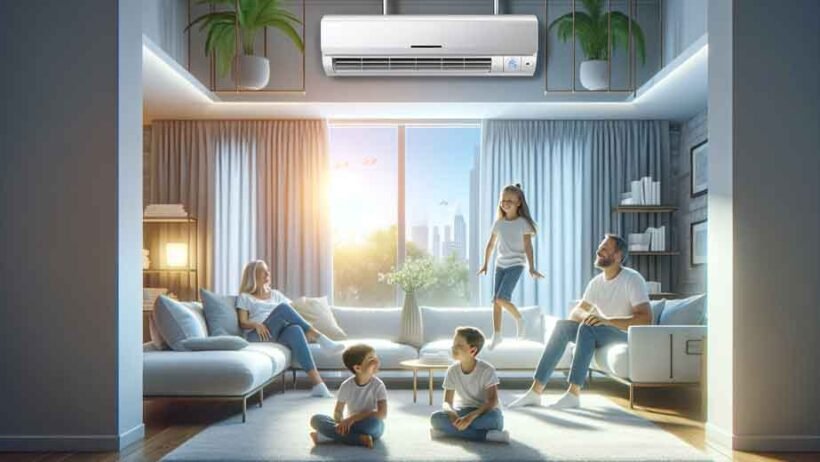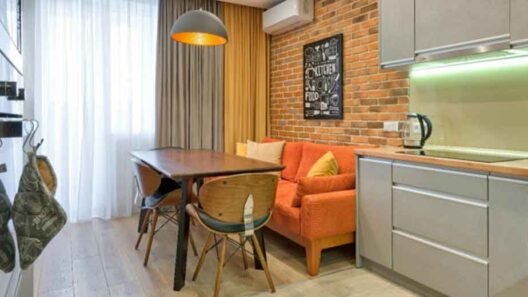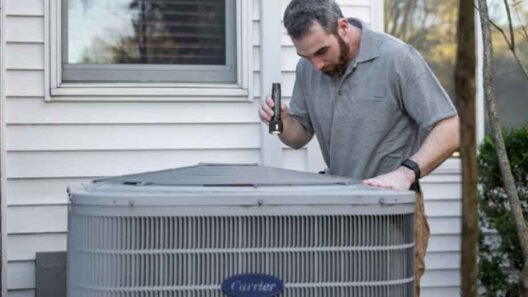Home comfort is one of the most essential aspects of daily living, and HVAC systems play a central role in maintaining it. A home’s heating, ventilation, and air conditioning system regulates temperature, balances humidity, and contributes to indoor air quality, all of which directly affect well-being. Without a reliable system, seasonal changes can create uncomfortable conditions that disturb sleep, productivity, and overall health. Beyond simple temperature control, HVAC systems influence the way families interact within their spaces by shaping the atmosphere of every room. Understanding how these systems affect comfort helps highlight their actual value in creating homes that feel welcoming, balanced, and consistently livable throughout the year.
Temperature control and seasonal comfort
Temperature regulation is the most apparent function of an HVAC system, and it is one that directly shapes home comfort in every season. During the summer, air conditioning prevents heat from overwhelming the living space, while in the winter, heating provides warmth and safety against the cold. A properly functioning HVAC system ensures that these changes occur seamlessly, keeping rooms comfortable regardless of the conditions outside. The ability to maintain steady indoor temperatures prevents the fatigue, irritability, or discomfort that often results from extreme fluctuations. Modern systems also allow for programmable settings, enabling consistent comfort tailored to individual household routines. These adjustments mean that mornings, evenings, and overnight hours are all balanced without requiring constant manual intervention. By regulating temperature effectively, HVAC systems provide the foundation for a comfortable home environment year-round.
Indoor air quality and its effect on living spaces
While temperature is a critical factor, indoor air quality is equally essential for comfort and health. HVAC systems filter out dust, pollen, pet dander, and other airborne particles that would otherwise circulate through the home. Cleaner air not only helps those with allergies or respiratory conditions but also creates a fresher atmosphere that everyone can appreciate. Systems that incorporate advanced filtration or purification technology add another layer of comfort by reducing odors and minimizing irritants. Poor air quality can make even a well-cooled or heated room feel unpleasant, as stuffiness or pollutants undermine relaxation and peace of mind. Balanced ventilation further enhances this by replacing stale air with fresher circulation throughout the home. For homeowners seeking reliable improvement, it is often helpful to check our HVAC services to learn how regular maintenance and upgrades can sustain healthier air quality while boosting overall comfort. These measures make a noticeable difference in day-to-day living.
Humidity control and balanced environments
Humidity is a factor often overlooked when thinking about comfort, but it is one of the most influential elements in creating a livable indoor space. Too much humidity fosters mold growth, creates musty odors, and makes the air feel heavy, while too little can dry out skin, irritate the respiratory system, and even damage wood furniture and flooring. HVAC systems equipped with humidifiers and dehumidifiers help maintain the ideal indoor relative humidity range of 30 to 50 percent, creating a balance that supports both comfort and health. This stability ensures that homes remain pleasant even during humid summers or dry winters. By moderating moisture levels, HVAC systems allow the air to feel cooler in hot weather and warmer during colder months, effectively complementing temperature control. The result is an environment that feels more natural, reduces discomfort, and minimizes health risks associated with poor humidity balance. This capability is central to why HVAC systems are indispensable in modern living.
Energy efficiency and consistent comfort
Comfort does not solely depend on temperature or air quality; it is also influenced by how efficiently a system operates. An HVAC system that cycles constantly, makes loud noises, or creates uneven airflow can be disruptive, drawing attention to its operation rather than blending into the background. Energy-efficient systems are designed to deliver steady comfort while using less power, thereby reducing utility bills and environmental impact simultaneously. Properly sealed ductwork, clean filters, and well-maintained components help ensure that energy is used effectively without waste. Smart thermostats further enhance efficiency by automatically adjusting settings based on occupancy and user habits, providing seamless comfort without the need for constant monitoring. This consistency not only keeps households physically comfortable but also creates peace of mind knowing that costs remain manageable. When homeowners experience reliable comfort with fewer interruptions or concerns about bills, their satisfaction with their living environment naturally increases.
Long-term comfort through maintenance and upgrades
The impact of HVAC systems on home comfort extends beyond initial installation, relying heavily on ongoing maintenance and timely upgrades. Regular inspections, filter replacements, and seasonal tune-ups help keep systems running smoothly, preventing sudden breakdowns that disrupt comfort at the most inconvenient times. As technology evolves, upgrades such as zoning systems or advanced thermostats offer greater control over how comfort is distributed throughout a home. Zoning, for example, allows different rooms to be set at various temperatures, ensuring that every family member enjoys personalized comfort. Neglecting maintenance often leads to diminished performance, uneven temperatures, and poor air quality, which directly undermine the livability of a home. By staying proactive, homeowners ensure that their system continues to support not only physical comfort but also emotional well-being, as they can depend on it regardless of external conditions. This long-term approach preserves the actual value of an HVAC system in enhancing everyday life.
The impact of HVAC systems on home comfort is undeniable, touching every aspect of daily living. From temperature regulation and indoor air quality to humidity balance, energy efficiency, and long-term performance, these systems are essential for creating environments that feel secure, balanced, and inviting. A properly maintained system ensures that each season brings stability rather than discomfort, allowing families to thrive in a space that consistently meets their needs. The value of comfort extends beyond physical ease, encompassing peace of mind and overall satisfaction with the home. By recognizing the many ways HVAC systems influence comfort, homeowners can take proactive steps to maintain and upgrade their systems. In doing so, they safeguard their investment and ensure that their living spaces remain healthy, efficient, and truly comfortable for years to come.








